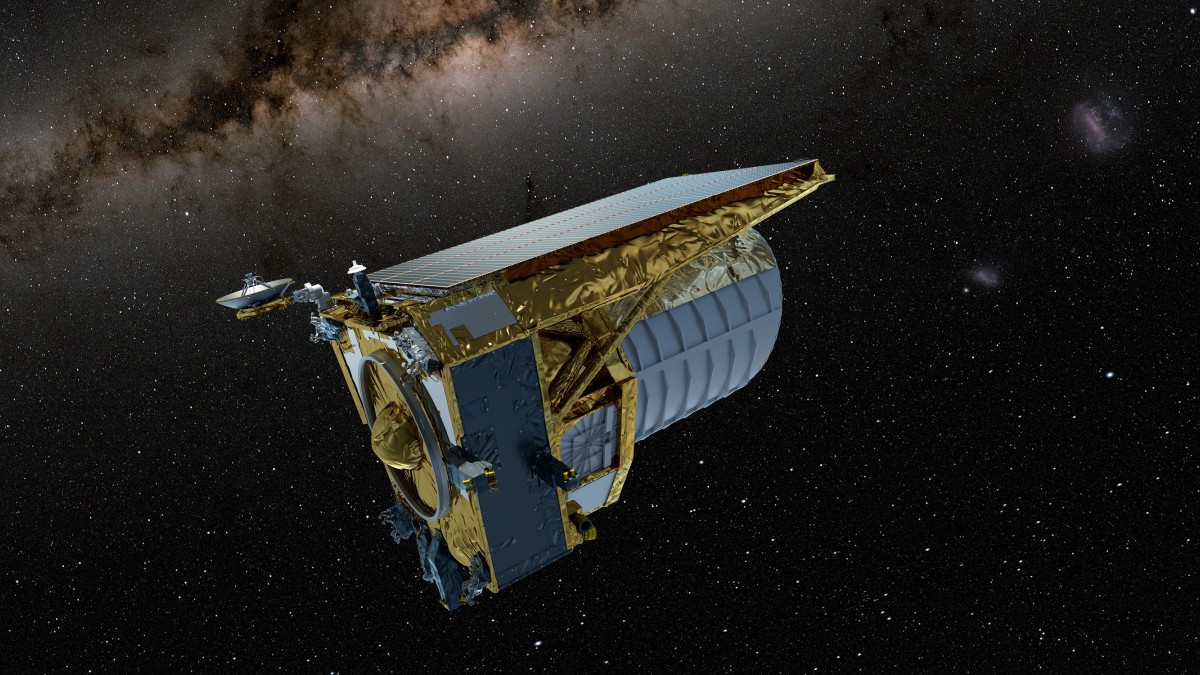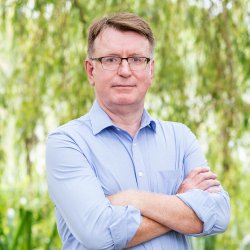Surrey professor at the launch of Euclid satellite
The University of Surrey’s Professor Bob Nichol was in Florida at the weekend to watch the successful launch of Euclid, a European Space Agency (ESA) satellite which will transform how we view the ‘dark universe’ and test alternative theories of gravity.

Euclid will enable research into 'dark matter' and 'dark energy'
Euclid was blasted into space from Cape Canaveral on Saturday (1 July), carried by one of SpaceX’s Falcon-9 rockets. ESA quickly made communication with the satellite after launch, and it is now undergoing a month-long journey to the second Earth-Sun Lagrangian Point, five times further from Earth than the Moon. It is headed for the same part of the sky as the James Webb Space Telescope.
After several months of commissioning to check the instruments and take the first images, Euclid will undertake a five-year mission to scan about a third of the sky, probing both ‘dark matter’ and ‘dark energy’ – unknown substances thought to make up 95% of the energy density of the universe.
Having worked on Euclid since its inception, the launch was a big day for Professor Nichol, a cosmologist and astrophysicist and Executive Dean of the Faculty of Engineering and Physical Sciences at the University of Surrey. Speaking from Florida immediately after Euclid launched, he told the BBC:
“Today is a very special day… I’m a Manchester City fan, and I would put this up there with winning the treble.”
When ESA was deciding which project to develop as part of their cosmic visions exercise in 2007, the Agency invited Professor Nichol to join a panel of independent experts to differentiate between the two proposals for investigating dark matter and dark energy. His panel advised they merge both, and Euclid was born.
He was chosen for the ESA panel because of his expertise in Baryon Acoustic Oscillations (BAO) and went on to serve as the BAO expert on ESA’s Euclid Science Team for a decade (stepping down in 2020). He still sits on the Euclid Consortium Board (he’s now one of just two British scientists on the Board), which oversees the leadership of the Euclid Consortium; over 2000 scientists working together to exploit the Euclid data.
Explaining more about Euclid, Professor Bob Nichol said:
“There are two scientific instruments aboard Euclid: the visible instrument known as VIS and the near-infrared spectrometer and photometer, known as NISP. They measure different things but when combined with data from ground-based telescopes we will optimise the information scientists can glean about both dark matter and dark energy.
“We’ll use measurement techniques which have been deployed in the local Universe but Euclid will do it for the first time in the distant Universe, closer in time to the Big Bang, continuing to map the expansion history of the Universe in greater detail.”
Read more from the BBC about Euclid and watch the launch.
Read articles written for The Conversation by Professor Nichol about how Euclid will transform how we view the ‘dark universe’ and how it will test alternative theories of gravity.
Media Contacts
External Communications and PR team
Phone: +44 (0)1483 684380 / 688914 / 684378
Email: mediarelations@surrey.ac.uk
Out of hours: +44 (0)7773 479911
